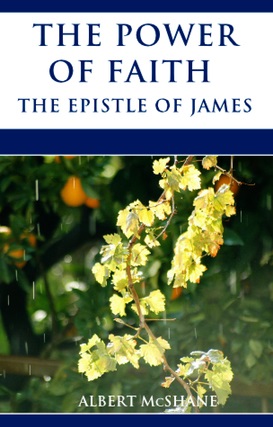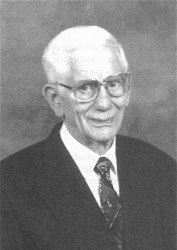

£6.99
THE POWER OF FAITH
THE EPISTLE OF JAMES
In his introduction to this short book, Mr. McShane expresses the hope that this book might 'rekindle interest in this much neglected epistle and lead the saints to seek grace to enable them to practise its precepts'. In the pages that follow, he provides a characteristically lucid, practical, and helpful introduction to this important epistle. This book will illuminate our understanding of James' epistle, and challenge our hearts about the expression of faith in our lives. First published in 1986, it remains a relevant and useful resource for understanding James's epistle. It is recommended reading.
About the author:

Albert McShane
(1914–2002) was born near Lurgan, Northern Ireland, where he was saved as a young man. From 1944, he was engaged full-time in the Lord's service, preaching and teaching throughout the United Kingdom, and farther afield.
Book Reviews:
The Power of Faith: The Epistle of James - By Albert McShane
The expression multum in parvo comes to mind when one reads this book because, in a commentary smaller than many others on James, there is a great deal said in relatively few words. The present reviewer had the privilege of frequently hearing Mr McShane during the last 15 to 20 years of his public ministry. One of the enviable abilities which he had was to put into concise language the teaching of Scripture. Never far away from these clear expositions were challenging applications for everyday living. He produced quite a number of very useful writings on a range of Bible books and themes.
The author says that few assembly writers have worked on James. This is true, and lends the book an added edge for most readers. While there are larger commentaries available, this one by Mr McShane has an advantage. He has striven to show the 'flow' of the epistle, following James' thoughts, and merging each section into the next. Often, the weight of detail in a larger commentary means that the bigger picture is more difficult to see.
James was a forceful communicator, not beating about the bush, in touch with what was happening and yet self-effacing. He was exceedingly practical, and seemed to have a deep understanding of human nature. He had high aims for the Christians, which was to see them fully matured. Those who knew Mr McShane will remember that some of these things also characterised him! Perhaps this added to his suitability and desire to write on this epistle.
The transition from the Jewish system is helpfully touched on, and the many metaphors are well explained. Old Testament incidents are used to elucidate the practical matters in the epistle, and this in itself is most valuable. Above all, Mr McShane urges the importance of faith in the Christian life, saying that ‘Our spiritual development can be measured by the growth of our faith’. Young believers, or older, should not miss this book, nor its timely content. James may be the earliest book of the New Testament, but it has never been more needful than it is today.
Reviewed by John Fleck
The expression multum in parvo comes to mind when one reads this book because, in a commentary smaller than many others on James, there is a great deal said in relatively few words. The present reviewer had the privilege of frequently hearing Mr McShane during the last 15 to 20 years of his public ministry. One of the enviable abilities which he had was to put into concise language the teaching of Scripture. Never far away from these clear expositions were challenging applications for everyday living. He produced quite a number of very useful writings on a range of Bible books and themes.
The author says that few assembly writers have worked on James. This is true, and lends the book an added edge for most readers. While there are larger commentaries available, this one by Mr McShane has an advantage. He has striven to show the 'flow' of the epistle, following James' thoughts, and merging each section into the next. Often, the weight of detail in a larger commentary means that the bigger picture is more difficult to see.
James was a forceful communicator, not beating about the bush, in touch with what was happening and yet self-effacing. He was exceedingly practical, and seemed to have a deep understanding of human nature. He had high aims for the Christians, which was to see them fully matured. Those who knew Mr McShane will remember that some of these things also characterised him! Perhaps this added to his suitability and desire to write on this epistle.
The transition from the Jewish system is helpfully touched on, and the many metaphors are well explained. Old Testament incidents are used to elucidate the practical matters in the epistle, and this in itself is most valuable. Above all, Mr McShane urges the importance of faith in the Christian life, saying that ‘Our spiritual development can be measured by the growth of our faith’. Young believers, or older, should not miss this book, nor its timely content. James may be the earliest book of the New Testament, but it has never been more needful than it is today.
Reviewed by John Fleck
© Scripture Teaching Library Ltd. All Rights Reserved